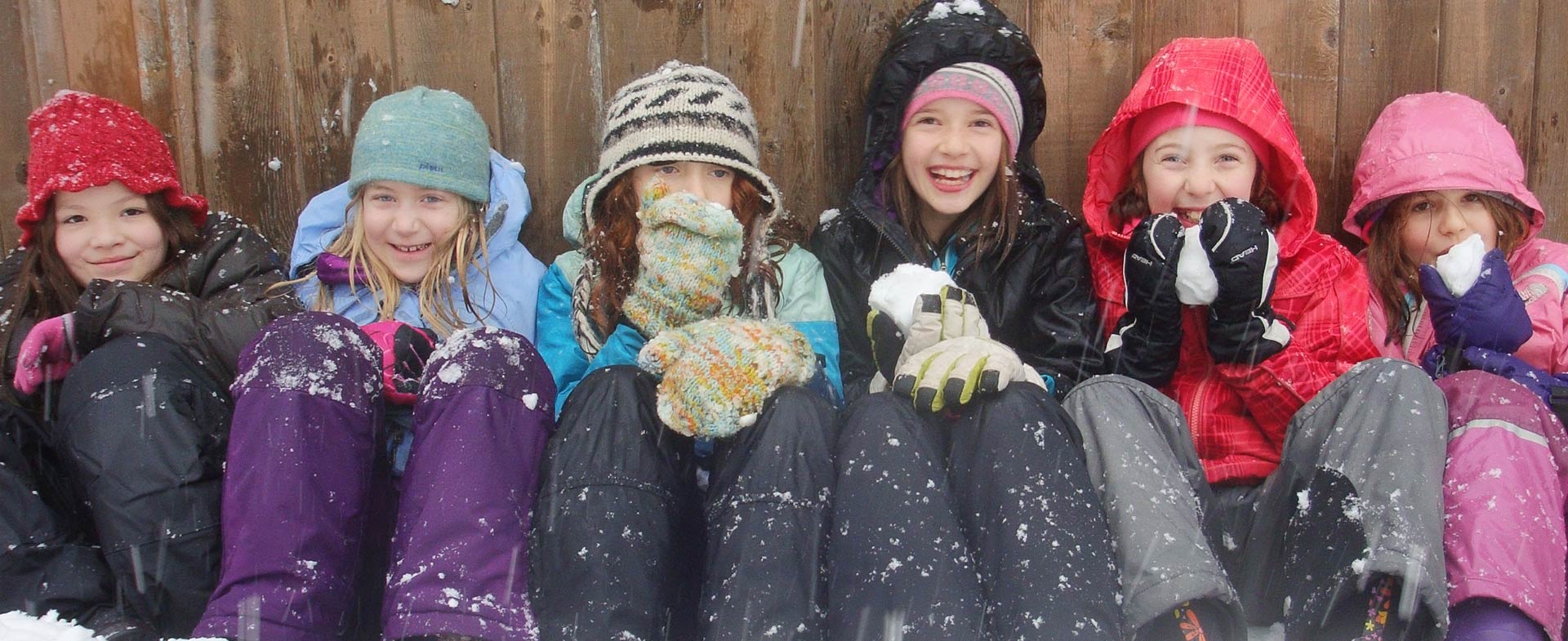
Squamish Waldorf School is one of more than 1,000 Waldorf schools in 64 countries worldwide, constituting one of the largest independent school networks internationally. In the national conversation about education we are hearing more about moving away from standardized testing and too-early, high-pressure academics, the benefits of less screen time and more outdoor play, and the importance of handwork and handwriting. None of these ideas are new to the Waldorf environment, and have both research and experience to validate them. Based on a nearly 100-year-old methodology, Waldorf education enjoys a long history and tradition, yet it is as fresh and relevant today as ever.
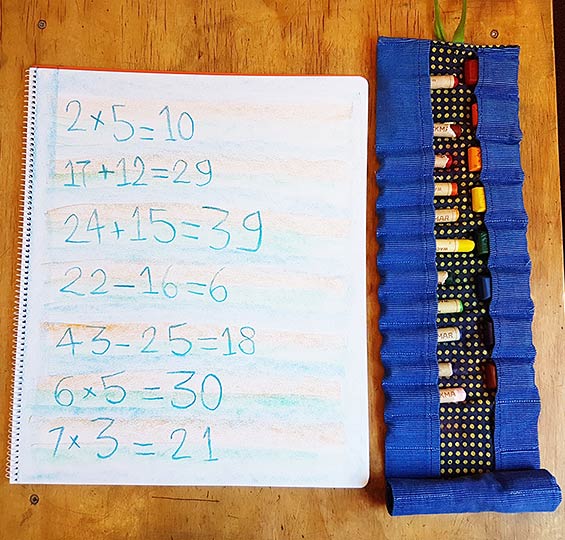
THE RIGHT THING AT THE RIGHT TIME
Rather than providing students with the largest amount of information as quickly as possible, our curriculum is designed to meet the specific needs of students at different stages of their development. We meet students where they are developmentally, intellectually and emotionally, to inspire a lifelong love of learning. Our deep and varied curriculum includes age-appropriate, rigorous academic work, as well as rich artistic experiences that combine to make learning an adventure, not a chore.
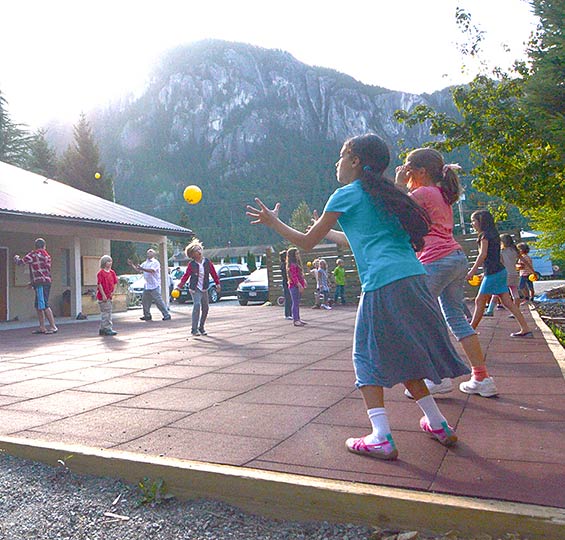
OUTDOOR PLAY
Children spend generous amounts of time outdoors every day, in all weather. Not only is being outside in all weather in integral part of the Squamish lifestyle, it is an important part of our curriculum. Being outdoors in all kinds of weather establishes a strong connection to nature and encourages hands-on exploration in science. In the outdoors, children use their imagination, dig and collect, organize and collaborate. In addition, physical activity has a positive impact on early brain development and children return to the classroom refreshed and ready to learn.
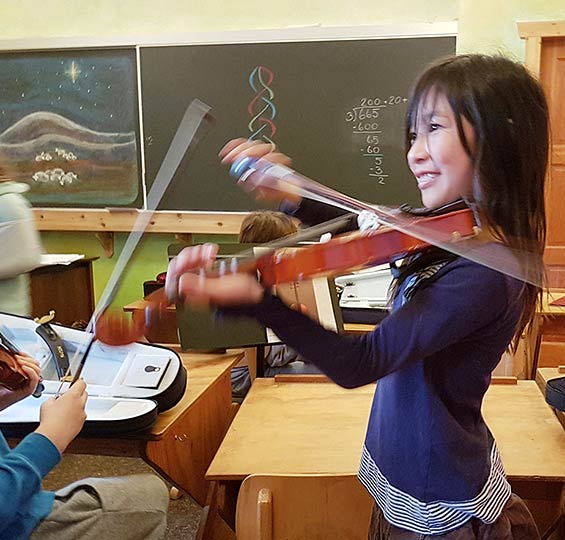
MUSIC PLAYS AN IMPORTANT ROLE
Whether by singing a song while we put on our boots, learning songs for a seasonal festival, or playing flute and violin, music plays an important role in Waldorf life. Not only does music strengthen cognitive abilities, it brings energy and focus, it lifts our spirits and even reminds us of mathematical relationships. It may be of interest to read these recent articles about the benefits of music:
PBS.org – The Benefits of Music Education
ParentingScience.com – Music & Intelligence
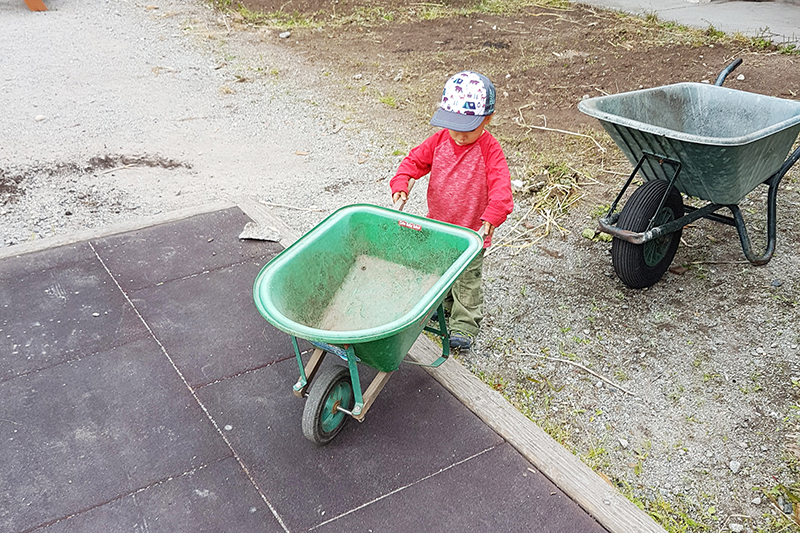
THE RIPPLE EFFECT OF VOLUNTEERING
In many ways, enrolling your child at SWS also involves enrolling yourself. We ask parents to volunteer on a regular basis. Why?
Volunteerism builds community and connection, and brings a sense of purpose to our work. In addition, children feel supported when parents are active in school life, and your efforts serve as a model which develops their capacity as caring and committed citizens.
In short, giving of your time is not only personally enriching, it strengthens the social life of the school and serves as an example of community-mindedness to our children.
The joyful community life that we celebrate at Squamish Waldorf School would not be possible without the selfless work of our volunteers. We thank everyone who gives their time to benefit the children, the school and the larger community.
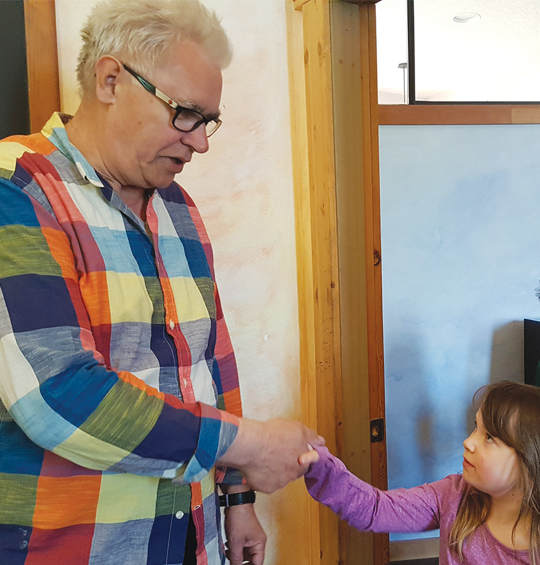
MORNING HAND SHAKE
* SWS is not practicing this in the time of Covid.
Every morning, teachers shake each student’s hand, greeting them, meeting their gaze and connecting with them individually. So much can be learned during this brief contact, when we see the children in front of us with new eye, and then bring them exactly what they need.
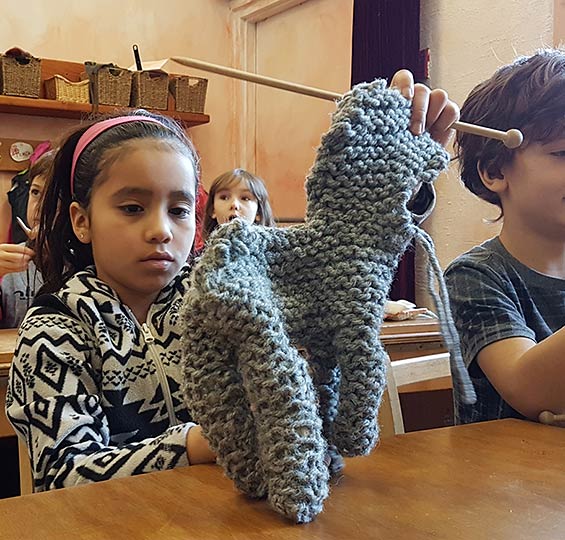
THE BENEFITS OF HANDWORK
At its very simplest, completing a handwork project instills feelings of accomplishment and pride, but there are many developmental and academic benefits as well. Starting with finger knitting in Kindergarten, handwork builds focus, self-discipline and patience. What’s more, handwork activities strengthen fine motor skills, improve memory and challenge the brain. Studies and observations suggest that learning to knit in first grade strengthens math and reading development.
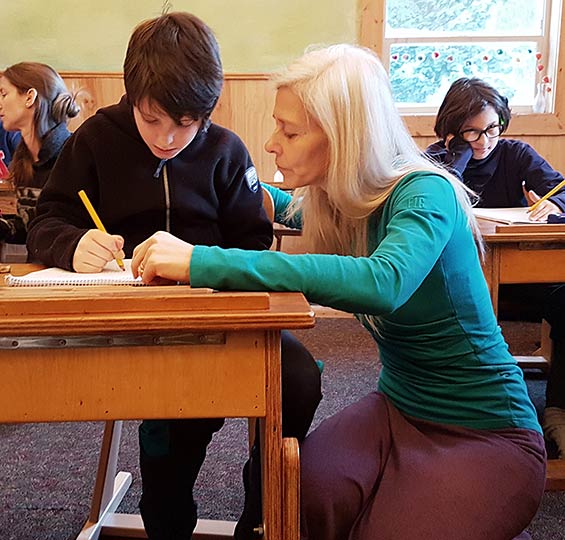
APPRECIATION OF INDIVIDUALITY
Every child has a unique learning style. Our curriculum provides information through all the senses to meet a wide range of learning styles. The curriculum presents a full range of activities, indoors and out, each day to meet the needs of each individual child.
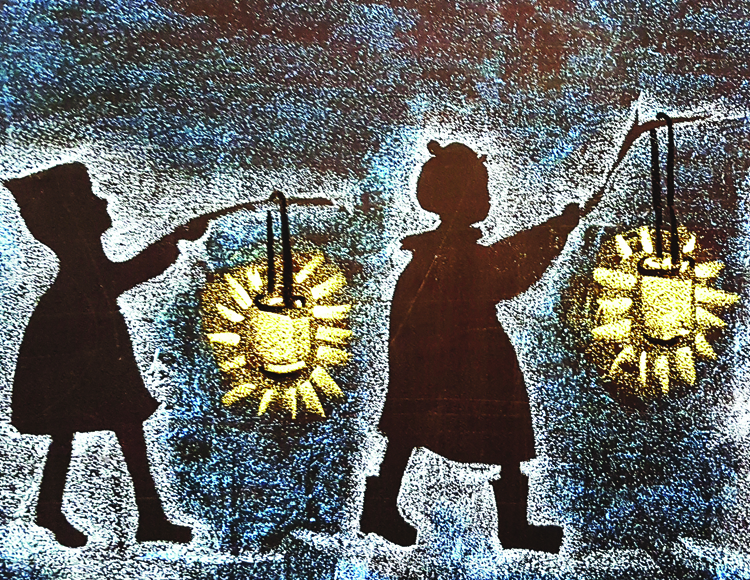
FESTIVALS & OBSERVANCES
Festivals and seasonal events are joyous celebrations that are an important aspect of Waldorf education, bringing rhythm and order to the year—honouring the cycles of nature and lifting us out of the ordinary and into the mysteries and magic of the seasons.
“To celebrate a festival really means to unite oneself in spirit with the cosmic spirit.” – Rudolph Steiner

CLASS PLAYS
Why do Waldorf schools have students perform a class play? Class plays deepen student’s curriculum, and encourage collaborative learning by incorporating music, recitation, memorization, acting, and visual arts.
Plays give students a unique opportunity to grow. They can be guided to emerge or develop from a comfortable place within themselves or perhaps play a part of someone very different and challenging. As a result, the children experience exuberance, pride, and joy in bringing their hard work to fruition.
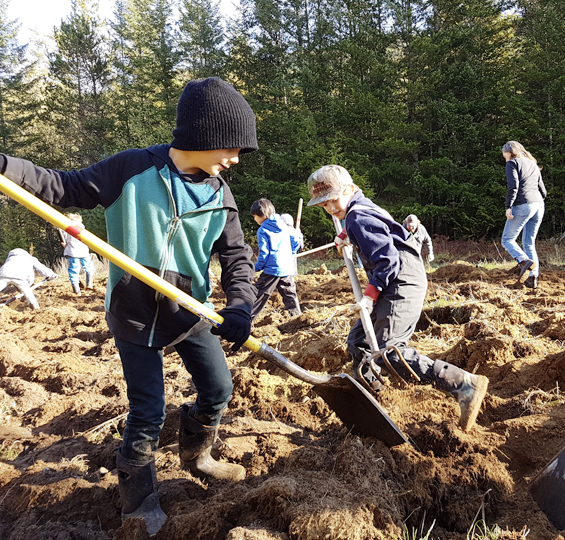
HOLISTIC EDUCATION
Waldorf education is holistic, addressing the intellectual, spiritual, emotional, and physical aspects of the child, and we work to bring these aspects into harmony and balance. Our “head, heart and hands” approach nurtures and acknowledges the whole child. Because young children connect with subjects through their feelings more than their intellect, artistic activity is part of all our subjects and lessons. Practical work — from cooking and gardening in the Kindergarten, to house building in third grade, to service projects in the middle school — all help students experience how they make a difference in the world.
Our science lessons and activities, especially those directly in nature, are also holistic. Our curriculum engages the senses, honing powers of observation and sparking the imagination.
In adolescence they can draw on inner strength and security to navigate new terrain in their education and in their lives. Each year, this result is evidenced by the poise, confidence, enthusiasm and courage of our graduating class.
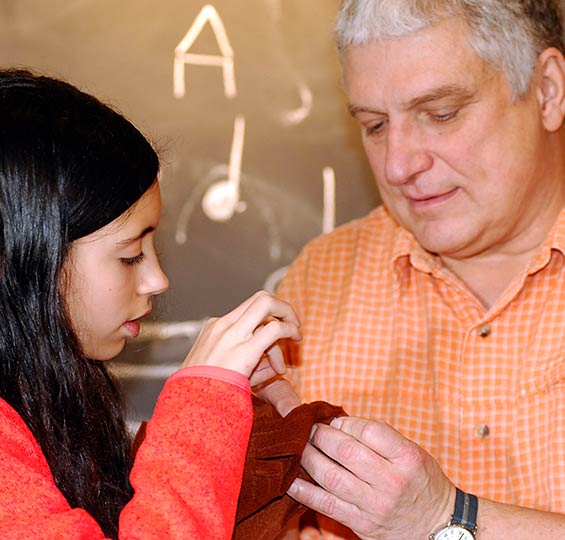
WE TEACH HOW TO THINK, NOT WHAT TO THINK
A Waldorf education focuses less on acquiring information and more about what do to with that information. In early childhood, free play and imagination prepares the basis out of which abstract thought and intellect will develop. In the upper grades, the power of abstract thought blossoms as children to easily create mental images which later leads to creative thinking. This important preparatory work yields a strength for building intelligence throughout life.
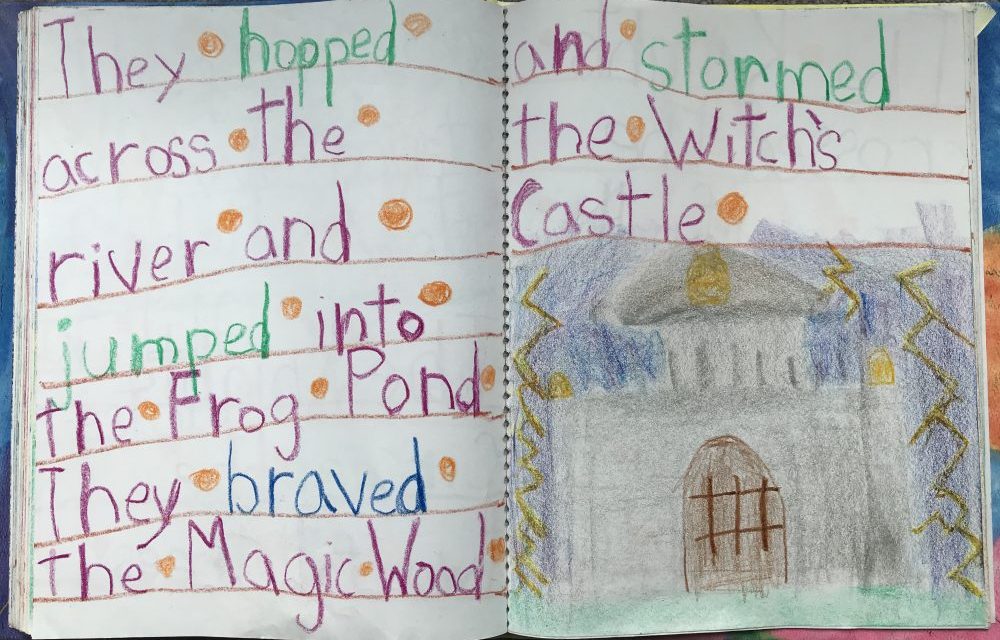
EARLY LITERACY
Waldorf education’s approach to reading and writing is different from traditional methods seen in public schools. This has led to a misconception that Waldorf students are taught reading “late,” but the truth is that Waldorf educators are instead building foundations for reading comprehension before decoding. This leads to a deeper understanding and appreciation of content students read and ultimately enhances comprehension.
“Literacy development in Waldorf schools cultivates awareness, appreciation, and skill in both the spoken and written word, following a developmentally sound approach that helps to ensure that students claim a love of literature, language and writing as part of their birthright.”
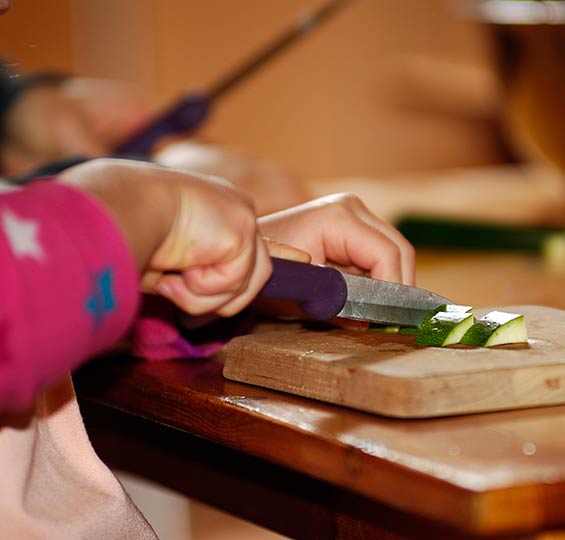
WE ARE AN INDEPENDENT SCHOOL
While meeting all B.C. Ministry of Education requirements, we have the freedom to design our curriculum based on Waldorf education. We are a non-profit, charitable organization governed by a Board of Directors. Independent schools in B.C. receive half the funding of public schools. In the public system, the building and property are given freely to the school. Independent schools rely upon tuition revenues, some government funding, fundraising and philanthropic gifts to meet their operating and capital expenses.
